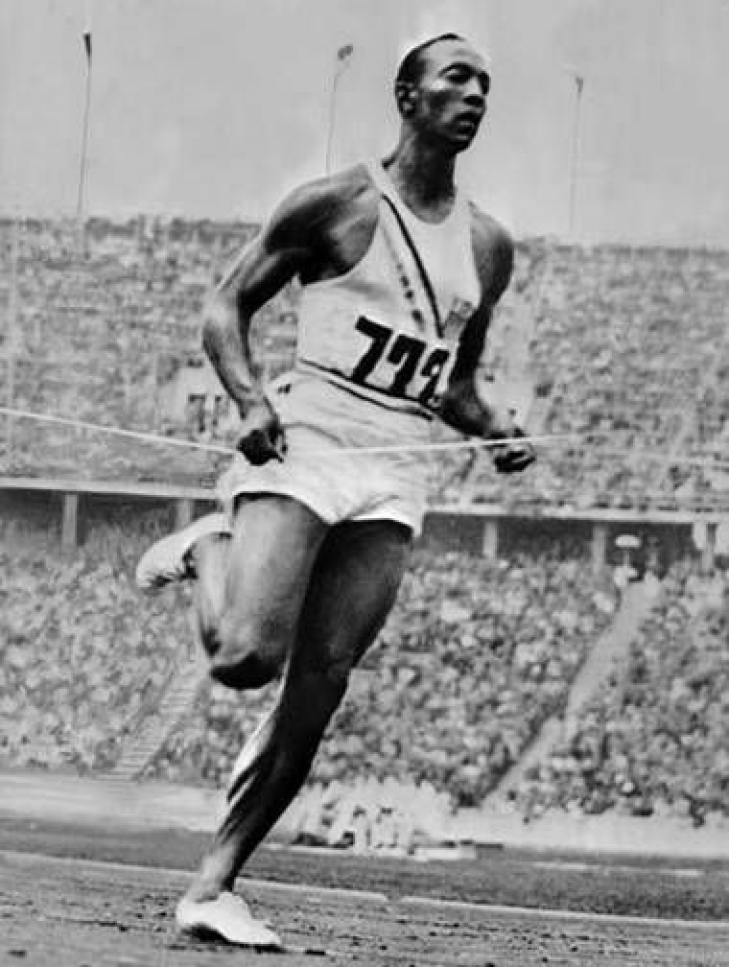
Committee Chairman
Why Do Podcasts Talk Highly About Herbal Products Lately?
Podcasts have become a powerful platform for conversations about lifestyle trends, and one topic that keeps gaining attention is herbal products. From wellness discussions to sustainability conversations, podcast hosts are diving into the world of botanicals, exploring their cultural significance, production methods, and market growth. As listeners look for natural alternatives in various aspects of life, podcasters bring expert guests, industry insights, and personal experiences. But why is this topic trending more than ever now? Let’s take a closer look at why herbal products have become a hot topic in the podcasting world.
Here's Why Podcasts Talk Highly About Herbal Products Lately
Rising interest in natural and plant-based lifestyles
Podcasts are increasingly discussing herbal products due to the rising interest in natural and plant-based lifestyles. As more people explore alternatives in their daily routines, podcast hosts dive into conversations about herbal ingredients, their uses, and the growing shift toward plant-derived products.
These discussions often focus on the cultural and market trends driving the demand for botanical solutions, making the topic relevant and engaging. By covering everything from herbal teas to plant-based supplements, podcasts keep their audiences informed about the latest developments in the natural lifestyle movement, reinforcing the growing appeal of herbal products in today’s market.
Deep dives into traditional and cultural herbal practices
Podcasts increasingly highlight herbal products by exploring traditional and cultural herbal practices worldwide. Many episodes focus on the historical significance of various botanicals, discussing how different cultures have incorporated them into daily life for centuries.
Hosts and guests often share stories about ancient traditions, regional plant-based remedies, and the role of herbs in cultural rituals. By deep diving into these practices, podcasts make herbal products more relatable and engaging, connecting modern listeners with their rich heritage.
Growing market for herbal-based businesses and startups
Podcasts spotlight herbal products as the market for herbal-based businesses and startups continues to expand. With more entrepreneurs entering the industry, podcast hosts discuss emerging brands, innovative products, and the increasing consumer demand for plant-based alternatives.
Many episodes feature interviews with business owners, investors, and industry experts who share insights on market trends, challenges, and success stories. This focus highlights the business potential of herbal products and gives listeners an inside look at how startups are shaping the industry's future.
Discussions on sustainability and eco-friendly alternatives
Podcasts increasingly highlight herbal products as part of a larger conversation about sustainability and eco-friendly alternatives. Many hosts explore how herbal-based goods align with the growing movement toward environmentally conscious living, from ethical sourcing to biodegradable packaging.
Discussions often focus on how herbal businesses adopt sustainable farming methods, reduce waste, and prioritize eco-friendly production. By featuring experts, entrepreneurs, and advocates, podcasts provide insight into how the herbal industry is adapting to meet consumer demand for greener solutions.
Exploring local herbal trends
Podcasts are diving into local herbal trends, highlighting how different regions embrace plant-based products uniquely. From city-based herbal markets to small-batch artisanal brands, these discussions give listeners insight into what’s trending in their area.
Many episodes explore how specific herbs gain popularity in certain locations, whether through specialty shops, cultural influences, or consumer demand. For example, some podcasts feature discussions on where to buy kratom in chicago, shedding light on the growing presence of herbal products in urban markets.
Featuring expert guests and industry leaders in the herbal space
Podcasts elevate discussions about herbal products by featuring expert guests and industry leaders who bring credibility and insight to the conversation. Herbalists, entrepreneurs, and market analysts often join hosts to share their knowledge on sourcing, trends, and the evolving demand for plant-based products.
These expert-driven episodes provide listeners with in-depth perspectives beyond surface-level discussions, offering valuable information on production, ethical business practices, and consumer preferences. By inviting thought leaders in the herbal space, podcasts create engaging and informative content that keeps audiences educated and interested in the latest developments within the industry.
Engaging storytelling and personal experiences with herbal products
Podcasts are making herbal products more relatable by incorporating engaging storytelling and personal experiences into their discussions. Many hosts and guests share firsthand accounts of discovering and incorporating herbal products into their lifestyles, making the content feel authentic and compelling.
These narratives often explore cultural traditions, unique product discoveries, or personal journeys that resonate with listeners. By blending informative discussions with real-life experiences, podcasts create a more immersive and emotional connection to herbal products, making them feel more accessible and appealing to a broad audience. This storytelling approach keeps listeners engaged while sparking curiosity about plant-based alternatives.
How Do Podcasts Talk About Herbal Products Lately?
Podcasts discuss herbal products by blending expert insights, market trends, and personal experiences into engaging discussions. Hosts explore topics ranging from traditional herbal practices to modern business innovations, often featuring guest speakers who bring credibility and depth to the conversation.
Many podcasts highlight sustainability, regional herbal trends, and consumer preferences, making the content informative and relevant. Through storytelling, interviews, and deep dives into the evolving industry, podcasts create a dynamic platform where listeners can learn about herbal products in an educational and entertaining way.
Trending Herbal Products That Podcasts Talk About Lately
Podcasts have been buzzing about trending herbal products making waves in the market. From adaptogenic teas and botanical-infused beverages to sustainably sourced herbs and plant-based wellness essentials, these products are gaining attention for their innovation and growing popularity.
Many podcasts focus on unique regional trends, spotlighting local favorites and emerging brands that cater to the rising demand for herbal-based alternatives. Discussions often explore what makes these products stand out: their ethical sourcing, cultural significance, or creative formulations. As interest in herbal products continues to rise, podcasts are key in informing audiences about the latest industry trends.
Bottom Line
Podcasts have become a major platform for discussions on herbal products, blending expert insights, cultural traditions, and market trends to keep listeners engaged. Whether exploring sustainability, highlighting local herbal movements, or featuring industry leaders, these conversations help shape the growing interest in plant-based alternatives. With storytelling, firsthand experiences, and in-depth analysis, podcasts make herbal products more accessible and appealing to a wider audience.
Why Should Esports Be Considered a Sport?
Sports now extend beyond physical competitions because chess and motorsports represent intellectual contests among other mind-intensive events. The modern world actively debates whether esports should receive status as an actual sport.
There are critics who state video games lack physical activity, but esports fulfill most standards that define competitive sports, including abilities at play and strategic thinking, along with team composition and viewer interest.
Esports deserves to be recognized as a valid sport based on the existing criteria. The following text explains the reasons behind this positive reply.
5 Reasons Why Esports is Considered A Sport
1. Esports Requires Skill and Training
Sport demands training and practice to develop necessary skills because this stands as a fundamental sport requirement. Professional esports players devote long hours each day to practice since they must develop their reflexes, understand game strategies, and work as a team.
Esports players mimic traditional sports athletes because they organize practice activities and study gameplays as well as opponent strategies to secure better results in matches. A competitive environment exists in games including League of Legends, Dota 2, Counter-Strike: Global Offensive, and Valorant.
Which require players to demonstrate top athletic abilities such as exact hand movements, swift choices, and enduring mental strength.
2. Esports Involves Organized Tournaments and Leagues
The key element of sports includes organized professional leagues combined with tournaments. The esport industry has built worldwide competitive infrastructure through several events including:
- The International Dota 2 stands as one of the premier esports tournaments that distributes multi-million-dollar prize payouts.
- League of Legends World Championship—Attracts millions of viewers worldwide.
- The Fortnite World Cup presents athletic competitions that enable young video game players to take part in professional gaming.
In fact, players can even earn money while gaming through competitive play, sponsorships, and streaming platforms
3. Esports Demands Physical and Mental Endurance
Many people oppose esports sport classification because their activities appear to lack physical activity. Regardless of the different requirements between esports and running/swimming, professional gamers suffer strain due to their extensive periods of extreme gameplay.
Gaming professionals cultivate their reaction speed together with their accuracy and endurance to handle stressful moments on the playing field. The athletes train both their bodies and minds to minimize exhaustion while sharpening their concentration and stress management abilities in ways similar to typical athletes.
4. Esports Has a Massive Audience and Economic Impact
The competitive aspect of sports represents only one part of their dynamic because fans form an integral part of their success. The streaming platforms Twitch, YouTube Gaming, and Facebook Gaming deliver live matches to viewers from all across the globe who watch millions of esports spectators each day.
The major esports competitions draw crowds that match or exceed traditional sports championship numbers because they occupy complete stadiums.
The peak viewer count for the League of Legends World Championship in 2021 surpassed traditional sports tournaments when it reached 73 million spectators. The esports industry provides a sustainable career path for youth gamers who seek financial rewards as their profession.
5. Esports Is Gaining Official Recognition
Esports has achieved formal organizational approval worldwide during the last few years:
- The Asian Games 2022 included esports as a medal event.
- The International Olympic Committee (IOC) is exploring esports integration.
- Governments and universities worldwide are introducing esports programs and scholarships.
Final Words
Traditional sports qualities, including talent development along with competitive formats and teamwork, appear in esports through the elements of skill and teamwork combined with physical endurance and audience interaction. Its place in the sporting world becomes stronger thanks to the developments of professional leagues and mainstream recognition events in addition to global tournaments.
Can Digital Games Be Included in Sports?
The definition of sports has evolved through time as physical pastimes, including football and basketball, gradually expanded to include chess among other not-so-traditional sports.
Digital gaming has grown rapidly, so experts now debate whether the virtual world meets the criteria to qualify as a sport.
Digital games should be recognized as genuine sports because their strategic gameplay and competitive elements prove their status as proper athletic events.
What Defines a Sport?
Digital games need proper assessment to establish their status as sports varieties. Traditionally, sports involve
- Athletes participate in extensive training to establish effective game strategies that enable better opponent victories.
- Competition: Organized leagues, tournaments, and rankings structure sports.
- A sport's emphasis can be on physical dexterity along with endurance, such as running, but also on mental dexterity, as seen in chess.
- Sports engage audiences as an entertainment through human attendance and media broadcasting.
The criteria for being a competitive sport are satisfied in digital games, as they attract vast audiences to watch esports tournaments.
The Rise of E-Sports as a Competitive Field
Electronic sports represent a professional development of digital gaming that has established structured competitive competitions. Esports athletes follow the same pattern as traditional sports competitors through daily training sessions that build their strategic skills together with reflex development for participation in high-value competition events.
Whether you’re a casual player or an aspiring pro, you can play exciting games on the BHT Club games and experience the thrill of competition.
Dota 2 and League of Legends, along with Counter-Strike: Global Offensive and Valorant, collect wide global viewer audiences while attracting multi-million-dollar prize money distribution.
E-sports leagues operate just like their traditional sports league counterparts through their establishment of professional teams and sponsorship contracts as well as specialized training facilities. The academic sphere supports the competitive nature of video gaming through scholarship programs at various institutions that back digital gaming as an authentic competitive field.
Recognition of Digital Games in the Sports World
Major organizations now acknowledge digital gaming because it has become a popular mainstream activity.
During the Asian Games 2022, e-sports earned the status of a competition that awarded medals. The International Olympic Committee is researching possible methods to integrate virtual competitions into e-sports after examining their potential integration.
Worldwide educational institutions, together with governments, have established e-sports programs that demonstrate the status of digital gaming as a competitive sport.
Gamers now benefit from easier access to competitive gaming through the efforts of gaming platforms. All players from any level of experience can enjoy thrilling contests and seek the competitive joys of various platforms.
Conclusion: The Future of Digital Games in Sports
Modern sports identity shifts toward acceptance of digital games as they establish themselves as competitive options in sports. E-sports features formal league play including professional participants together with increasing spectator engagement, thus matching several traits of conventional sports events. Technology developments could make digital games establish themselves as a central component of worldwide sports business operations.
Legendary Athletes Who Took Risks—And Won Big
Some of the greatest athletes in history didn’t just win because they were talented. They won because they took big risks. Whether they stood up for their beliefs, pushed their bodies beyond what seemed possible, or made tough choices that could have ended their careers, these athletes proved that sometimes taking a chance is the only way to achieve greatness. This article looks at some sports legends who made bold moves and came out on top, changing their sports forever.
Jesse Owens Wins Against the Odds
In 1936, the Olympics were held in Berlin, Germany, when Adolf Hitler was in power. He wanted to use the Games to prove that his athletes were the best in the world. But American sprinter Jesse Owens had other plans. He competed fearlessly, winning four gold medals in the 100 meters, 200 meters, long jump, and 4x100 meter relay. His victory was a powerful moment against racism. By refusing to be intimidated, Owens became a symbol of strength and one of the greatest Olympians of all time.
Muhammad Ali Risks His Career for His Beliefs
Muhammad Ali wasn’t just a champion in the boxing ring. He actually was a champion for what he believed in. In 1967, he refused to be drafted into the U.S. Army during the Vietnam War. Because of this, he lost his heavyweight title and was banned from boxing for years. But Ali never backed down. Eventually, he returned to the ring, won back his title, and became one of the most respected athletes in history.
Even today, fans honor Ali in many ways. Some watch his famous fights, visit the Muhammad Ali Center, collect memorabilia, and bet on major boxing events. Others enjoy casino games inspired by boxing legends. If you’re thinking about playing online casino games, always choose a trusted platform like jackpotcity.ca for a safe and fun experience.
Simone Biles Tries a Move No One Else Would
Gymnastics is a dangerous sport, and pushing the limits can be risky. But Simone Biles has never been afraid to take on new challenges. In 2019, she performed the “triple double”—a move with two flips and three twists in mid-air. No female gymnast had ever done it in a competition. If she had failed, she could have been seriously injured, but she landed it perfectly. By taking that risk, Biles changed gymnastics forever and proved why she is one of the greatest athletes ever.
Kerri Strug Pushes Through the Pain to Win Gold
At the 1996 Olympics, U.S. gymnast Kerri Strug hurt her ankle during her initial vault attempt. Most athletes would have stopped, but Strug knew her team needed her to secure the gold medal. Even though she was in pain, she went for a second vault. She landed on one foot, sealing the victory for Team USA. Her determination and bravery made her an Olympic legend. Strug’s story shows that sometimes, pushing through tough moments can lead to unforgettable victories.
Usain Bolt Switches Sports and Becomes a Legend
Before he became the fastest man in the world, Usain Bolt wanted to play cricket. But his coaches noticed his incredible speed and encouraged him to focus on sprinting instead. It was a big risk. What if he wasn’t good enough? But Bolt trusted the advice, worked hard, and became an //medium.com/@gijovijayan_22826/usain-bolt-is-an-eight-time-olympic-gold-medalist-in-track-and-field-from-jamaica-952834e6aa82">eight-time Olympic gold medalist. He broke world records in both the 100 meter and 200 meter races and became one of the most famous athletes in history.





